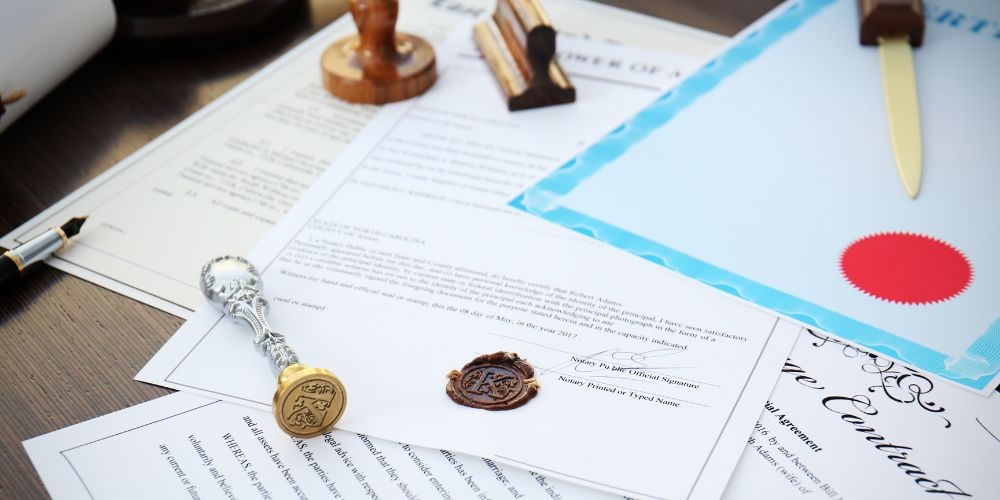When using language proficiency certificates for immigration or employment purposes abroad, apostille services are often required to authenticate the document for international recognition. Here are the top 10 tips for researching how to get an apostille for your language proficiency certificates:
- Check the Apostille Requirements of the Destination Country
- Research the specific immigration or employment requirements of the country where you intend to work or immigrate. Some countries require an apostille for all foreign documents, while others may only request it for certain documents. Confirm whether an apostille is needed for your language proficiency certificate.
- Verify the Recognition of the Language Proficiency Test
- Ensure that the language proficiency certificate is issued by a recognized institution or testing agency. For example, certificates from well-known exams like TOEFL, IELTS, or DELF may have different requirements for apostille, depending on the country. Check whether the testing organization is recognized by the destination country’s immigration or employment authorities.
- Confirm Which Language Proficiency Certificates Require Apostille
- Some countries may only require certain types of language proficiency certificates (e.g., official exams or institutional certifications) to be apostilled. Confirm with the embassy, consulate, or employer whether your specific certificate needs the apostille or if a different form of verification is acceptable.
- Understand the Apostille Process in Your Home Country
- Research the process for obtaining an apostille in your home country or state. In the U.S., apostilles are generally issued by the Secretary of State in the state where the certificate was issued. Make sure you understand the correct procedure, required forms, and fees involved in apostilling your certificate.
- Verify if Notarization is Required
- In some cases, your language proficiency certificate may need to be notarized before it can be apostilled. Some countries require notarization to confirm that the certificate is authentic. Check with the issuing authority or apostille service to verify whether notarization is necessary.
- Plan for Certified Translations (If Required)
- If the country where you’re applying for immigration or employment does not use English (or the language of the original certificate), you may need a certified translation of your language proficiency certificate. Certified translations are often required alongside the original, and both may need to be apostilled for the destination country to accept them.
- Check for Additional Documentation
- Many immigration and employment processes require more than just a language proficiency certificate. Be sure to check if other supporting documents, such as academic transcripts or letters of recommendation, also need to be apostilled to complete your application process.
- Verify Time Sensitivity and Validity
- Some countries may have time restrictions on the validity of documents, including language proficiency certificates. Make sure that your certificate is recent enough to be accepted, typically within one or two years, depending on the country’s requirements.
- Confirm the Apostille Acceptance Criteria
- Not all countries accept apostilles in the same format. Confirm with the consulate or immigration authorities of your destination country that the apostille on your certificate meets their criteria and will be accepted for immigration or employment purposes.
- Consult Apostille Services or Legal Experts
- If you’re unsure about how to proceed or find the process overwhelming, consider using a professional apostille service or consulting with an immigration lawyer. These experts can help guide you through the process, ensuring your language proficiency certificate is apostilled and correctly processed for your immigration or employment application.
Bonus Tip:
- Check for Specific Language Test Requirements: Some countries may require specific language proficiency tests (e.g., TOEFL, IELTS) for employment or immigration purposes. Ensure that the certificate you have aligns with the country’s preferred testing methods and scoring criteria.
By following these tips, you can effectively research the necessary steps to obtain an apostille for your language proficiency certificates and ensure that they are recognized and accepted for your immigration or employment purposes abroad.
Top 10 Tips for An FBI Background Check Apostille for Real Estate Transactions Abroad.
When conducting real estate transactions abroad, an FBI background check apostille may be required as part of the due diligence process or to fulfil legal or residency requirements. An apostille authenticates the background check for international use, ensuring it is legally recognized in the destination country. Here are the top 10 tips for obtaining an FBI background check apostille for real estate transactions abroad:
- Confirm the Need for an FBI Background Check Apostille
- Research the specific real estate transaction requirements of the country where you’re purchasing property. While some countries may require an apostilled background check for residency purposes, not all will mandate it for a property purchase. Contact the local embassy or real estate office to confirm whether an apostille is necessary.
- Understand the Role of the FBI Background Check
- The FBI background check is often required to demonstrate that you have no serious criminal history that might disqualify you from purchasing property or obtaining residency in certain countries. For some countries, it might also be needed to verify your eligibility for a residency visa or taxpayer identification for real estate transactions.
- Order the FBI Background Check in Advance
- Ordering the FBI background check requires submitting your fingerprints to the FBI. This process can take several weeks, so it is crucial to order it well in advance of your intended real estate transaction. Plan for processing times, as delays can hold up the entire transaction process.
- Ensure the Background Check is Complete and Accurate
- Verify that the FBI background check is thorough and includes all necessary details, such as your full name, date of birth, and criminal history (if any). Incomplete or outdated background checks may not be accepted, especially when apostilled.
- Check the Apostille Requirements for the Destination Country
- Research the apostille process for the country where you plan to buy property. While many countries are part of the Hague Apostille Convention, each country may have its own procedure and requirements for processing the apostille. Understanding the destination country’s process ensures compliance and reduces the chance of errors.
- Understand the Apostille Process in the U.S. (or Your Home Country)
- In the U.S., the Secretary of State in your state processes the apostille for FBI background checks. Each state may have different fees, processing times, and procedures, so it is essential to research how to submit your FBI background check for apostille in your state.
- Plan for Translation Requirements (If Necessary)
- If the country where you’re purchasing property speaks a language other than English, you may need a certified translation of the FBI background check. Some countries may require both the original English version and the translated version to be apostilled, so ensure that the translations meet the required standards.
- Consider the Processing Times for Apostille and Background Check
- The apostille process for the FBI background check can take several weeks, and some countries may require the apostille to be submitted with other documentation. Plan ahead to avoid delays in your real estate transaction, especially if the apostille is part of a larger visa or residency application process.
- Consult with a Real Estate Attorney or Agent
- Real estate laws and regulations vary widely from country to country, and an apostilled FBI background check might not be the only legal document you need for a real estate transaction abroad. Consult with a real estate attorney or agent who is familiar with the property laws in the country where you are purchasing to ensure you have all the required documentation.
- Use Professional Apostille Services (If Necessary)
- If you’re unsure how to navigate the apostille process or if you need assistance in submitting your FBI background check, consider using a professional apostille service. These services can guide you through the entire process and ensure that your FBI background check is properly apostilled and accepted by the authorities in your destination country.
Bonus Tip:
- Confirm the Validity Period: Some countries or agencies may have a validity period for FBI background checks (typically 6 months to a year). Ensure that your background check is recent enough to be accepted for your real estate transaction, especially if there are time-sensitive deadlines involved.
By following these tips, you can ensure that your FBI background check apostille is correctly processed and that you meet all legal and regulatory requirements for a smooth real estate transaction abroad, whether it’s for purchasing property, obtaining residency, or meeting due diligence criteria.



